
The Untamed Beauty of Ruvubu National Park
Nestled in the heart of Burundi, Ruvubu National Park is a sanctuary for wildlife and a haven for nature lovers. This expansive park covers over 500 square kilometers and is named after the Ruvubu River, which meanders gracefully through its landscape. The park is rich in diverse ecosystems, ranging from dense forests to vast savannahs, providing a home to a wide variety of flora and fauna. Ruvubu National Park is a birdwatcher's paradise, boasting over 425 species of birds. Here, you can spot the majestic fish eagle, the colorful kingfisher, and many more. The park is also inhabited by numerous mammals, including hippos, buffaloes, and antelopes. For those with a keen eye, there's even a chance to glimpse the elusive leopard. One of the park's highlights is the Ruvubu River itself, which offers opportunities for boating and fishing. As you explore the riverbanks, you'll be enchanted by the sight of crocodiles basking in the sun and the sound of monkeys chattering in the treetops. The park also has well-marked trails, perfect for hiking and immersing yourself in the tranquility of nature. Ruvubu National Park is not just about wildlife; it also provides a glimpse into the cultural heritage of Burundi. Local communities around the park are known for their traditional crafts and dances, offering visitors a chance to experience the vibrant culture of the region. Whether you're an avid nature enthusiast or simply looking for a peaceful retreat, Ruvubu National Park promises an unforgettable adventure.
Local tips in Ruvubu National Park
- Visit during the dry season from June to August for the best wildlife viewing opportunities.
- Bring binoculars for birdwatching; the park is home to over 425 bird species.
- Wear comfortable hiking shoes and light clothing to navigate the park's trails.
- Hire a local guide to enhance your understanding of the park's flora, fauna, and cultural heritage.
- Carry insect repellent to protect against mosquitoes, especially near the river areas.
- Respect local customs and traditions when visiting nearby communities.
The Untamed Beauty of Ruvubu National Park
Nestled in the heart of Burundi, Ruvubu National Park is a sanctuary for wildlife and a haven for nature lovers. This expansive park covers over 500 square kilometers and is named after the Ruvubu River, which meanders gracefully through its landscape. The park is rich in diverse ecosystems, ranging from dense forests to vast savannahs, providing a home to a wide variety of flora and fauna. Ruvubu National Park is a birdwatcher's paradise, boasting over 425 species of birds. Here, you can spot the majestic fish eagle, the colorful kingfisher, and many more. The park is also inhabited by numerous mammals, including hippos, buffaloes, and antelopes. For those with a keen eye, there's even a chance to glimpse the elusive leopard. One of the park's highlights is the Ruvubu River itself, which offers opportunities for boating and fishing. As you explore the riverbanks, you'll be enchanted by the sight of crocodiles basking in the sun and the sound of monkeys chattering in the treetops. The park also has well-marked trails, perfect for hiking and immersing yourself in the tranquility of nature. Ruvubu National Park is not just about wildlife; it also provides a glimpse into the cultural heritage of Burundi. Local communities around the park are known for their traditional crafts and dances, offering visitors a chance to experience the vibrant culture of the region. Whether you're an avid nature enthusiast or simply looking for a peaceful retreat, Ruvubu National Park promises an unforgettable adventure.
When is the best time to go to Ruvubu National Park?
Iconic landmarks you can’t miss
Bujumbura Zoo
Explore Bujumbura Zoo: A Family-Friendly Haven of Wildlife and Nature in the Heart of Burundi's Capital.
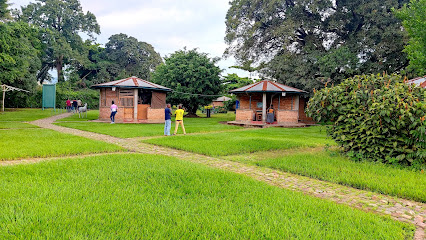
Gishora Drum Sanctuary
Experience the vibrant drumming traditions of Burundi at the Gishora Drum Sanctuary, a UNESCO World Heritage Site steeped in cultural significance.
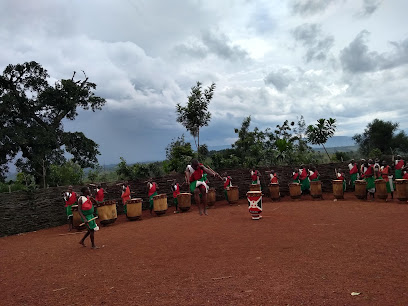
Livingston-Stanley Monument
Explore the Livingston-Stanley Monument in Ramba, Burundi - a tribute to adventure and discovery amidst stunning natural beauty.
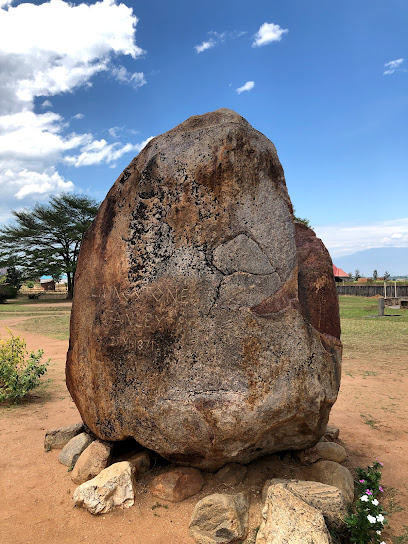
Kibira National Park
Discover the breathtaking landscapes and diverse wildlife of Kibira National Park, a true gem in the heart of Burundi, perfect for nature lovers and adventurers.
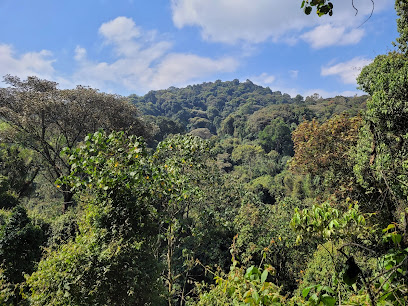
Rusizi National Park
Discover the breathtaking landscapes and vibrant wildlife of Rusizi National Park, a hidden gem for eco-tourists and adventure seekers in Burundi.
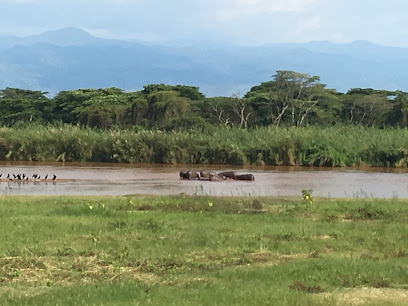
Bururi Forest Nature Reserve
Explore the enchanting Bururi Forest Nature Reserve, a serene haven teeming with unique wildlife and stunning landscapes in the heart of Burundi.
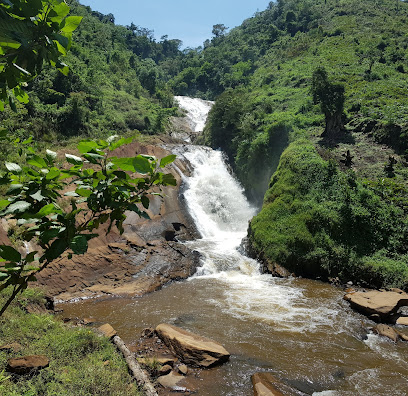
Regina Mundi Cathedral
Discover the architectural beauty and serene ambiance of Regina Mundi Cathedral, a spiritual landmark in Bujumbura, Burundi.
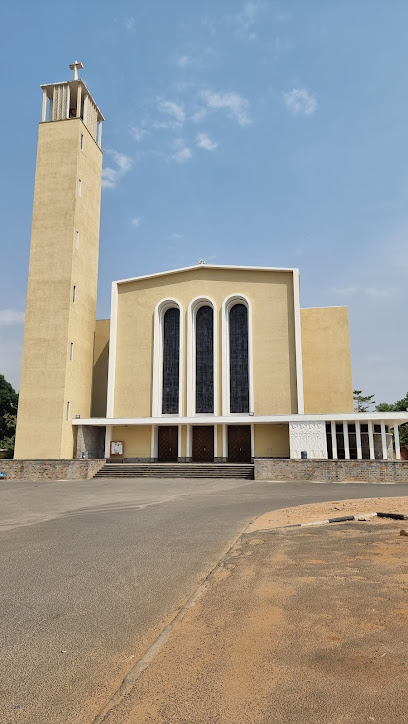
Burundi Discovery Tours
Discover the enchanting landscapes, vibrant culture, and rich wildlife of Burundi with personalized tours from Burundi Discovery Tours.
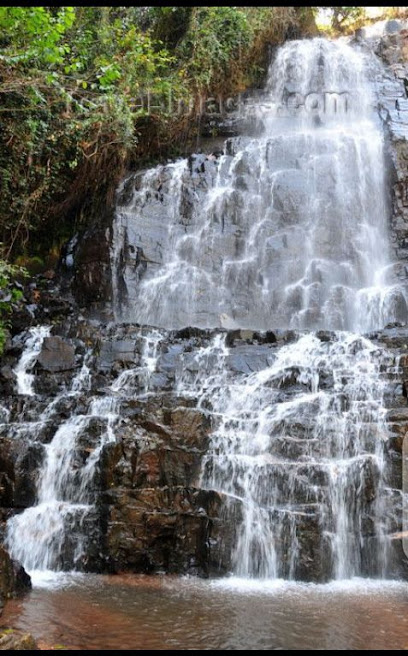
Ruvubu
Explore the serene beauty of Ruvubu River, a natural sanctuary in Burundi ideal for relaxation, wildlife observation, and outdoor adventures.
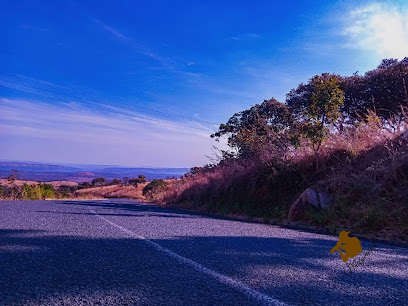
Visit Burundi
Explore the vibrant culture, breathtaking landscapes, and rich history of Burundi with Visit Burundi, your essential travel companion in Bujumbura.

Ruvubu national park Lodge
Discover the beauty of Burundi at Ruvubu National Park Lodge, your gateway to nature's wonder and wildlife adventures.
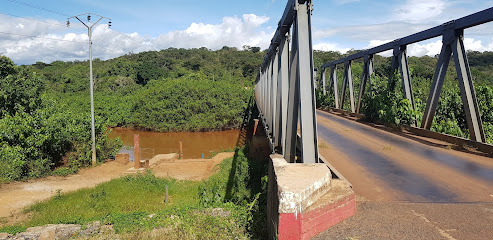
Unmissable attractions to see
Nyungwe Forest National Park
Explore Nyungwe Forest National Park, Rwanda's premier destination for breathtaking landscapes, diverse wildlife, and unforgettable hiking adventures.
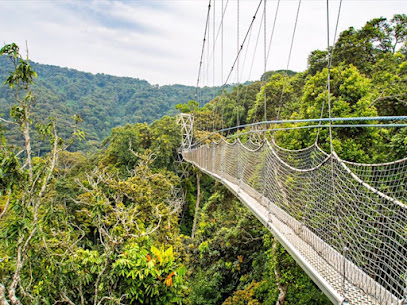
Paroisse Catholique de Muyaga
Explore the serene ambiance of Paroisse Catholique de Muyaga, a beautiful Catholic church nestled in the lush surroundings of Muyaga.
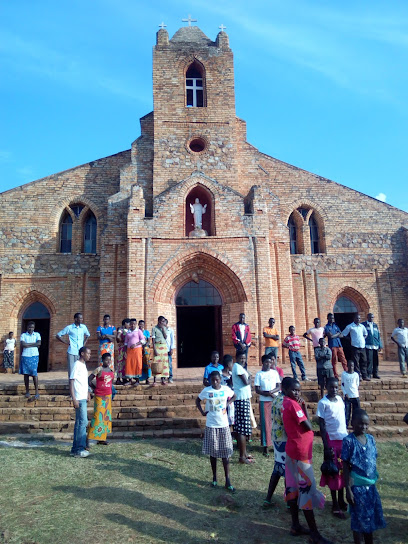
Lake Rweru Viewpoint
Discover stunning views and serene landscapes at Lake Rweru Viewpoint, an enchanting tourist attraction in Burundi.
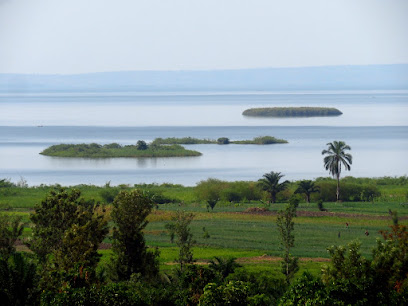
MAYANGE Haus el
Explore the serene beauty of MAYANGE Haus el, a hidden garden retreat in Buhoro offering tranquility and a connection to nature.

kigabiroモニュメント
Experience the breathtaking beauty and cultural richness of Kigabiro Mont, a stunning tourist attraction in Rwanda's serene landscapes.
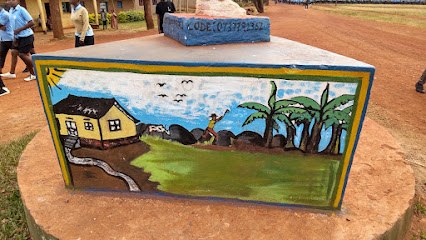
Rugomero forest
Escape to Rugomero Forest in Rwanda: a lush haven for nature lovers, birdwatchers, and those seeking tranquility amidst diverse wildlife.

Eaux thermales KU MAHORO
Experience tranquility and rejuvenation at Eaux Thermales KU MAHORO in Tondero, Burundi, a natural oasis of thermal springs with healing properties.
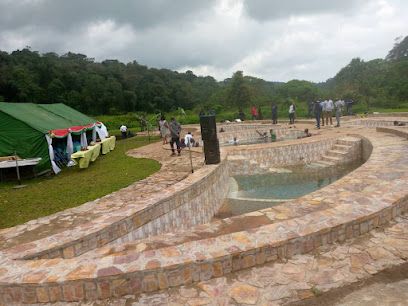
Heha falls
Discover the tranquility of Heha Falls in Rurambira, Burundi, a perfect escape for nature lovers and hiking enthusiasts seeking serene landscapes.
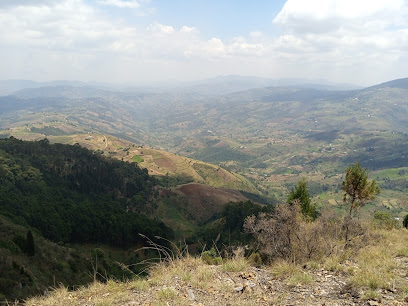
Ile d'Akagwa (Akagwa Island)
Escape to Ile d'Akagwa: A tranquil Burundi island with lush greenery, serene waters, and breathtaking sunsets, perfect for nature lovers and peaceful retreats.
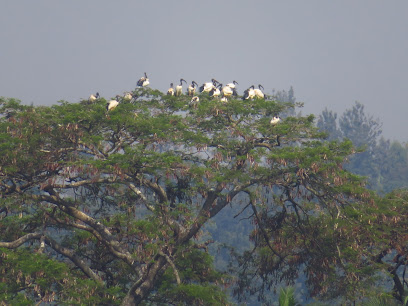
Jardin Cercle de Gitega
Explore the peaceful retreat of Jardin Cercle de Gitega, a lush garden oasis in the heart of Burundi's vibrant cultural capital.

HN
Discover the tranquil beauty of HN Park in Kibungere, a lush escape perfect for relaxation, nature walks, and family outings amidst vibrant greenery.

Kakonko 1
Explore Kakonko 1 in Kasanda, Tanzania – a stunning tourist attraction surrounded by natural beauty and rich cultural experiences.

Connessione Di Sacca
Discover tranquility in the lush surroundings of Connessione Di Sacca, a must-visit park in Burundi for those seeking natural beauty and peace.
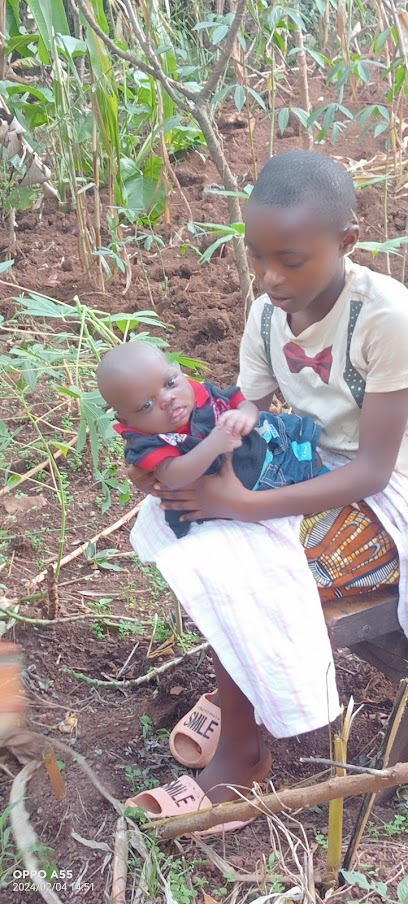
Otw
Discover the serene beauty of Otw, a tranquil garden in Gatabo, perfect for nature lovers and peaceful retreats.

ルヴィロンザ川源流
Explore the serene landscapes of Rwindi River Park in Bubaji, Burundi – a perfect retreat for nature lovers and adventure seekers alike.

Essential places to dine
Le Café Gourmand
Discover the flavors of Burundi at Le Café Gourmand - your go-to spot for delightful pastries and aromatic coffee in Bujumbura.
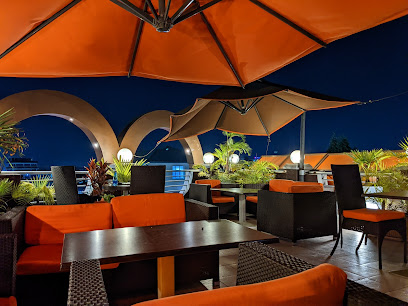
Roca Golf Hotel
Experience unparalleled luxury at Roca Golf Hotel in Bujumbura – where comfort meets breathtaking views.

Bujacafe
Discover Bujacafe in Bujumbura - where local flavors meet cozy ambiance for an unforgettable culinary experience.
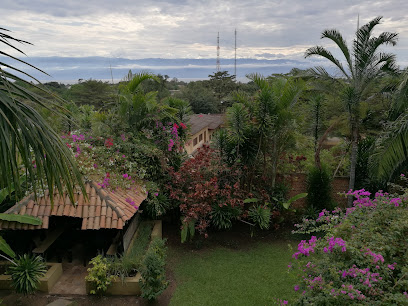
Waka Waka
Experience authentic Italian cuisine at Waka Waka in Bujumbura - where every meal feels like a celebration.
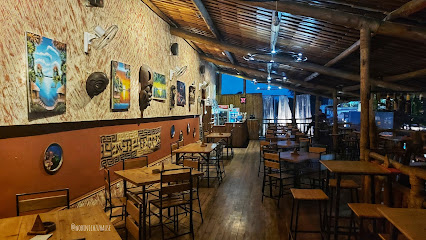
Hotel Residence Ubuntu
Discover tranquility at Hotel Residence Ubuntu—your lakeside retreat in Bujumbura offering comfort, stunning views, and exquisite dining.
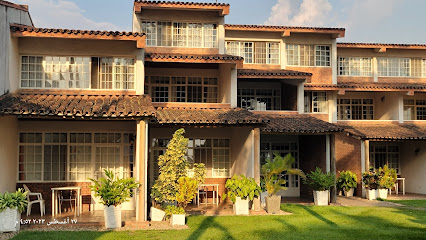
Vinothèque ZILLIKEN
Experience exquisite wines and delightful cuisine at Vinothèque ZILLIKEN, Bujumbura's top destination for food lovers and wine enthusiasts.
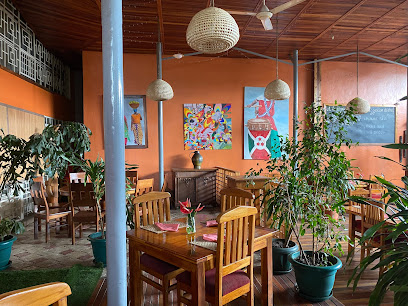
Harrys Grill House
Experience the ultimate barbecue delight at Harry's Grill House in Bujumbura—where flavor meets tradition!
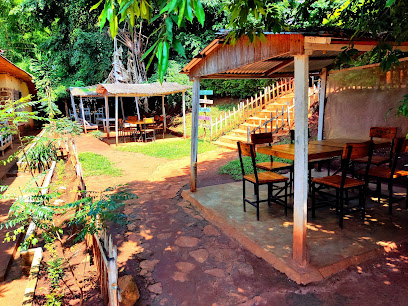
Amahoro Cafe
Discover Amahoro Cafe: Your go-to spot for exquisite coffee and pastries in Bujumbura's lively atmosphere.
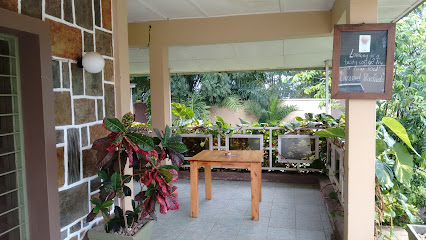
Maquis
Discover authentic Burundian cuisine at Maquis in Bujumbura - where every dish tells a story.
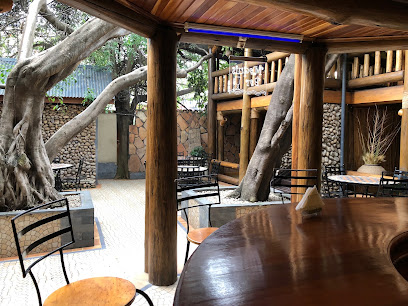
Pasta comedia
Discover flavorful Italian dishes blended with Burundian cuisine at Pasta Comedia, a charming restaurant in Bujumbura's vibrant dining scene.
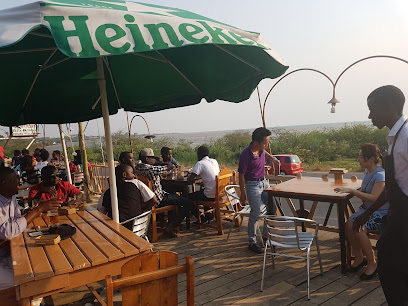
Belvedere Restaurant
Experience exquisite dining at Belvedere Restaurant in Bujumbura with stunning lake views and a diverse menu that delights every palate.
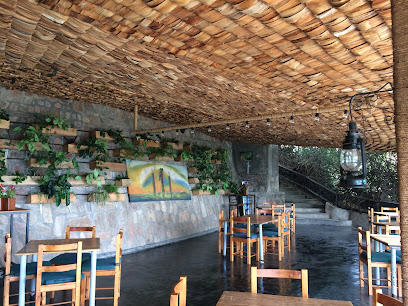
World Beach Bujumbura
Experience exquisite grilled flavors at World Beach Bujumbura while enjoying stunning views of Lake Tanganyika.
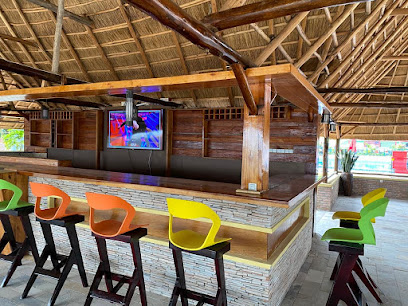
Restaurant Chez Orphée
Experience the vibrant flavors of Burundi at Restaurant Chez Orphée in Bujumbura – where culinary traditions meet modern dining.
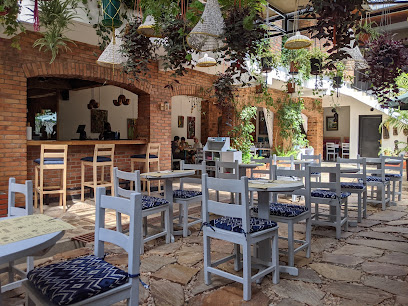
Hotel Dolce Vita Resort
Discover relaxation at Hotel Dolce Vita Resort in Bujumbura - where comfort meets exquisite dining amidst stunning surroundings.
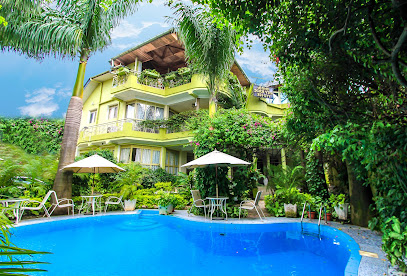
KEZAMIA Restaurant
Discover KEZAMIA Restaurant in Bujumbura – where local flavors meet cozy surroundings amidst nature's beauty.
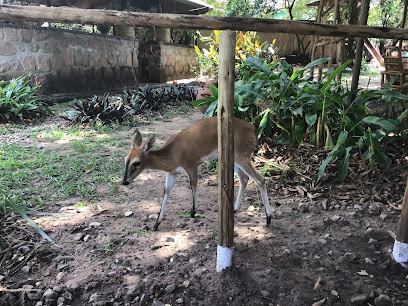
Markets, malls and hidden boutiques
Ruvubu National Park
Explore Ruvubu National Park - A haven of wildlife, stunning landscapes, and cultural experiences in Burundi’s natural heart.
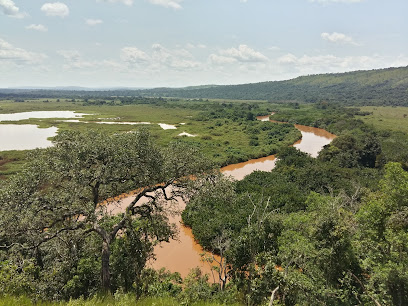
Gitega Galerie GWANZU
Explore Gitega Galerie GWANZU, where authentic Burundian crafts and local delicacies create a vibrant shopping experience for every traveler.
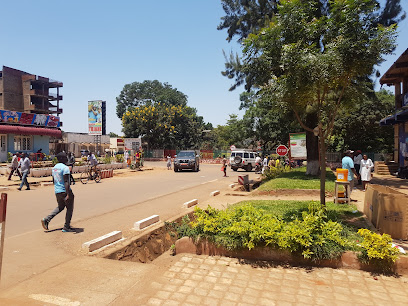
boulangerie uburyohe
Experience the essence of local flavors at Boulangerie Uburyohe, a charming bakery in Cankuzo known for its exquisite pastries and artisanal bread.

Marché Cankuzo
Discover the heart of Cankuzo at Marché Cankuzo, a vibrant shopping mall offering local crafts, delicious cuisine, and cultural experiences.

Marché de Gikomero
Discover the essence of local life at Marché de Gikomero, a vibrant shopping mall in Mbasi filled with crafts, fresh produce, and Burundian culture.

Murambi Coffee
Explore Murambi Coffee in Nkonyovu for an authentic shopping experience, savoring local coffee and unique artisanal products in a vibrant atmosphere.

Magasin Kubiyo
Explore Magasin Kubiyo, a hardware store in Burundi offering unique tools, local crafts, and an authentic shopping experience for every traveler.

Praia
Immerse yourself in the local culture of Mutobo at Praia, a vibrant grocery store showcasing fresh produce and traditional flavors.

Marché de Mayenzi
Explore the vibrant Marché de Mayenzi for a unique shopping experience filled with local produce, handcrafted goods, and authentic Burundian culture.

Kuruvubu
Experience the heart of Burundian culture at Kuruvubu Market, where vibrant stalls, local delicacies, and handcrafted treasures await every visitor.
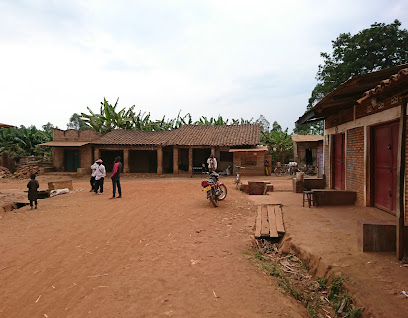
HI LER
Explore HI LER in Kibimba for exquisite jewelry that embodies local artistry and craftsmanship, perfect for unique gifts and souvenirs.

Venuste Niyongabo
Experience the essence of Nyabucugu at Venuste Niyongabo, your go-to general store for local flavors and authentic Burundian culture.

Paul Hasabumutima
Explore the vibrant craftsmanship of Burundi at Paul Hasabumutima, Kiremera’s premier gift shop for unique local treasures and authentic souvenirs.

Imani mungahana
Experience the essence of Kavumu at Imani Mungahana, where local craftsmanship meets vibrant culture in a delightful shopping adventure.

Ngabirejeandedieu
Explore the lively Ngabirejeandedieu Shopping Mall in Ruhwago, where shopping, culture, and local cuisine come together for an unforgettable experience.

Essential bars & hidden hideouts
KUNGOMA Bar
Experience the vibrant nightlife and local flavors at KUNGOMA Bar in Gitega, a must-visit destination for every traveler.
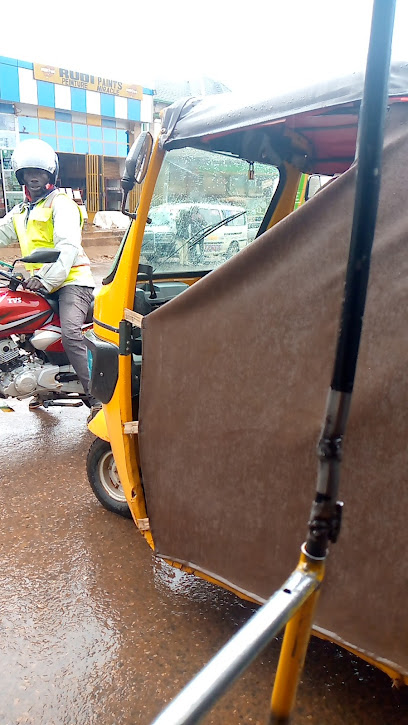
Bar KUBAHUMURE
Discover the vibrant atmosphere of Bar KUBAHUMURE in Gitega, where local culture and delightful drinks come together for an unforgettable experience.

BAR KUMUKONI
Experience the vibrant atmosphere of BAR KUMUKONI in Gitega, where local culture and delightful beverages come together for an unforgettable night out.

ZIGZAG BAR CHEZ TATAGARA
Discover the lively cultural scene at Zigzag Bar Chez Tatagara, a perfect spot for relaxation and socializing in Muyinga, Burundi.

LEGEND'S BAR
Experience the vibrant nightlife of Rutonde at Legend's Bar, where local flavors and a lively atmosphere bring every evening to life.

Best Next Bar
Discover the vibrant nightlife at Best Next Bar in Bwoga, where local flavors meet a welcoming atmosphere, perfect for tourists wanting to unwind.

Restaurant Bar de la Paroisse
Discover the heartbeat of Buvumo at Restaurant Bar de la Paroisse, where local flavors and a vibrant atmosphere create unforgettable moments.

Bar Maman balla
Experience the vibrant nightlife at Bar Maman Balla, a local favorite in Buhiga for refreshing drinks and a lively social atmosphere.

BAR KU NAMA
Experience the lively ambiance and local flavors at Bar Ku Nama, Gitega's premier destination for nightlife and socializing.

Mukesh
Experience the vibrant atmosphere of Mukesh, a local bar in Kiremera, where culture and camaraderie come together over delightful drinks.

Mukiziba
Experience the vibrant atmosphere of Mukiziba, a local bar in Gitongo offering unique drinks and a taste of Burundian culture.

Bar la Difference
Discover the vibrant atmosphere of Bar la Difference in Gitega, where locals and tourists unite over drinks and lively conversations.

Rumonge
Discover the vibrant nightlife and local flavors at Rumonge, a must-visit bar in Kiremera, perfect for relaxation and socializing.

Croixx rouge
Experience the vibrant nightlife at Croixx Rouge, a premier bar in Kwibuye offering local culture, delicious drinks, and live music.

Local Phrases about Ruvubu National Park
-
- HelloAmakuru
[ah-mah-koo-roo] - GoodbyeKwaheri
[kwah-heh-ree] - YesEgo
[eh-go] - NoOya
[oh-yah] - Please/You're welcomeMurakoze
[moo-rah-koh-zeh] - Thank youMwakoze
[mwah-koh-zeh] - Excuse me/SorryIjambo
[ee-jahm-bo] - How are you?Amakuru?
[ah-mah-koo-roo] - Fine. And you?Ni meza. Wewe?
[nee may-zah. way-way] - Do you speak English?Mwakoze amazi?
[mwah-koh-zeh ah-mah-zee] - I don't understandNtivyumva
[n-tee-vyoom-vah]
- HelloAmakuru
-
- I'd like to see the menu, pleaseNifise menu, kubaza
[nee-fee-say meh-noo, koo-bah-zah] - I don't eat meatSimvura imvi
[seem-voo-rah eem-vee] - Cheers!Amahoro!
[ah-mah-hoh-roh] - I would like to pay, pleaseNifise kwandika, kubaza
[nee-fee-say kwan-dee-kah, koo-bah-zah]
- I'd like to see the menu, pleaseNifise menu, kubaza
-
- Help!Ubwira!
[oo-bee-whee-rah] - Go away!Tangura!
[tahn-goo-rah] - Call the Police!Kora igisakuzo!
[koh-rah ee-gee-sah-koo-zoh] - Call a doctor!Kora umurwayi!
[koh-rah oo-moo-rwah-yee] - I'm lostNdi mu rugo
[n-dee moo roo-go] - I'm illNdi mu byaha
[n-dee moo byah-hah]
- Help!Ubwira!
-
- I'd like to buy...Nifise kugura...
[nee-fee-say koo-goo-rah] - I'm just lookingNshaka gukora iyo
[n-shah-kah goo-koh-rah ee-yoh] - How much is it?Igiciro kiratinda?
[ee-gee-chee-roh kee-rah-teen-dah] - That's too expensiveIyo ni cher cher
[ee-yoh nee cher cher] - Can you lower the price?Mwakoreshe igiciro?
[mwah-koh-reh-shay ee-gee-chee-roh]
- I'd like to buy...Nifise kugura...
-
- What time is it?Saa ngapi?
[sah-ah ngah-pee] - It's one o'clockNi saa imwe
[nee sah-ah eem-way] - Half past (10)Ku ntego ya cumi
[koo n-tay-goh yah choo-mee] - MorningUmugoroba
[oo-moo-goh-roh-bah] - AfternoonImvura y'igice
[eem-voo-rah yee-gee-chay] - EveningUmugoroba
[oo-moo-goh-roh-bah] - YesterdayEjo
[eh-joh] - TodayEjo
[eh-joh] - TomorrowEjo
[eh-joh] - 1Rimwe
[ree-mwe] - 2Kabiri
[kah-bee-ree] - 3Gatatu
[gah-tah-too] - 4Kane
[kah-nay] - 5Gatanu
[gah-tah-noo] - 6Gatandatu
[gah-tahn-dah-too] - 7Kumana
[koo-mah-nah] - 8Nyenda
[nee-en-dah] - 9Icyenda
[ee-chee-en-dah] - 10Icumi
[ee-choo-mee]
- What time is it?Saa ngapi?
-
- Where's a/the...?Iko he...?
[ee-koh hey] - What's the address?Uko aho?
[oo-koh ah-hoh] - Can you show me (on the map)?Mwakoreshe kubona (muri iyo ramapu)?
[mwah-koh-reh-shay koo-boh-nah moo-ree ee-yoh rah-mah-poo] - When's the next (bus)?Igihe cyarikiye (bus)?
[ee-gee-hay chah-ree-kee-yay] - A ticket (to ....)Umutike (kuri ....)
[oo-moo-tee-kay koo-ree]
- Where's a/the...?Iko he...?
History of Ruvubu National Park
-
Ruvubu National Park was officially established in 1980 by the Burundian government. The park spans over 508 square kilometers and was created to protect the diverse ecosystems and rich biodiversity found in the region. The establishment was part of a broader effort to preserve the country's natural heritage and promote eco-tourism.
-
Since its establishment, numerous conservation efforts have been implemented to protect the flora and fauna within Ruvubu National Park. The park is home to a wide range of species including hippos, crocodiles, buffaloes, and various antelope species. Additionally, it serves as a sanctuary for several bird species, making it a significant site for bird watching.
-
Ruvubu National Park holds cultural importance for the local communities living in and around the park. The indigenous peoples have traditionally relied on the land for their livelihoods, utilizing its resources for hunting, gathering, and agriculture. Efforts have been made to balance conservation initiatives with the needs and traditions of these communities.
-
The park has experienced challenges due to periods of civil unrest in Burundi. During times of conflict, poaching and illegal logging within Ruvubu National Park increased, posing significant threats to its ecosystems. Despite these challenges, concerted efforts by both local and international organizations have worked towards restoring and protecting the park's natural environment.
-
Ruvubu National Park has received international recognition for its ecological significance. Various international organizations have provided support for conservation projects, research, and eco-tourism development within the park. This support has been crucial in enhancing the park's infrastructure and ensuring the protection of its biodiversity.
-
Eco-tourism has become an important aspect of Ruvubu National Park's role in the region. The park attracts tourists from around the world who are interested in experiencing its natural beauty and wildlife. Eco-tourism initiatives have been developed to promote sustainable tourism practices that benefit both the environment and local communities.
Ruvubu National Park Essentials
-
Ruvubu National Park is located in the northeastern part of Burundi. The nearest major city is Bujumbura, which hosts the Bujumbura International Airport (BJM). From Bujumbura, you can take a domestic flight to Gitega or Ngozi, both of which are closer to the park. Alternatively, you can travel by road, which is approximately 300 kilometers and takes about 6 to 7 hours by car. It is recommended to hire a 4x4 vehicle due to the road conditions, especially during the rainy season.
-
Within Ruvubu National Park, the most convenient way to explore is by renting a 4x4 vehicle. Guided tours are also available and are highly recommended for first-time visitors. For shorter distances, walking safaris offer a closer look at the park's flora and fauna. Remember that public transportation options such as buses or taxis are not available within the park itself, so plan accordingly.
-
The official currency in Burundi is the Burundian Franc (BIF). Credit cards are rarely accepted, especially in rural areas and within the park, so it is essential to carry enough cash. ATMs are available in larger cities like Bujumbura and Gitega, but it's advisable to withdraw sufficient funds before heading to the park. Exchange services are also available at major hotels and banks.
-
Ruvubu National Park is generally safe for tourists, but standard safety precautions should be taken. Avoid traveling alone, especially at night. Be cautious of wildlife and always follow the guidelines provided by park rangers. While the park itself is safe, some areas in nearby cities may have higher crime rates, particularly in Bujumbura. Always stay vigilant and avoid displaying valuables openly.
-
In case of an emergency, contact the park's main office immediately. They can assist with medical emergencies, lost items, or other urgent matters. It's highly recommended to have travel insurance that covers medical emergencies and evacuation. For medical emergencies, the nearest hospitals are in Gitega and Ngozi. Always keep a list of emergency contacts, including the local embassy or consulate.
-
Fashion: Do dress in lightweight, breathable clothing for safaris, and wear neutral colors to avoid attracting wildlife. Don't wear revealing clothing, especially when visiting local communities. Religion: Do respect local customs and traditions. Remove your shoes when entering religious sites and dress modestly. Public Transport: Do be respectful and courteous to other passengers if you use public transport outside the park. Don't expect highly punctual services. Greetings: Do greet people with a handshake and a smile. Using basic phrases in Kirundi or French is appreciated. Eating & Drinking: Do try local dishes and accept food offerings graciously. Don’t refuse hospitality, as it is considered impolite.
-
To experience Ruvubu National Park like a local, consider hiring a local guide who can provide valuable insights into the park's ecosystem and history. Visit during the early morning or late afternoon when wildlife is most active. Engage with local communities around the park to learn about their way of life and traditional practices. Don't miss the opportunity to participate in bird-watching tours, as the park is home to a diverse range of bird species.
Nearby Cities to Ruvubu National Park
-
Things To Do in Gitega
-
Things To Do in Ngozi
-
Things To Do in Kirundo
-
Things To Do in Muramvya
-
Things To Do in Kayanza
-
Things To Do in Butare
-
Things To Do in Nyamata
-
Things To Do in Bujumbura
-
Things To Do in Bururi
-
Things To Do in Rumonge
-
Things To Do in Muhanga
-
Things To Do in Cibitoke
-
Things To Do in Kigali
-
Things To Do in Karongi
-
Things To Do in Kibuye






